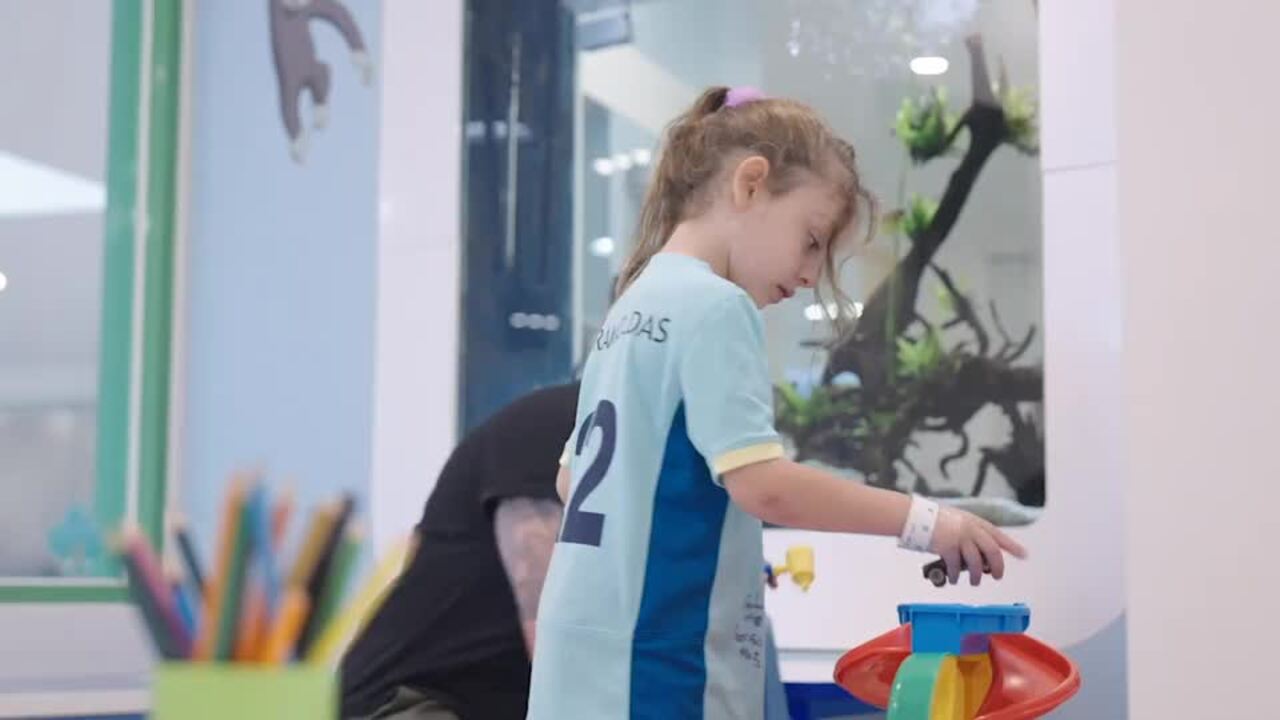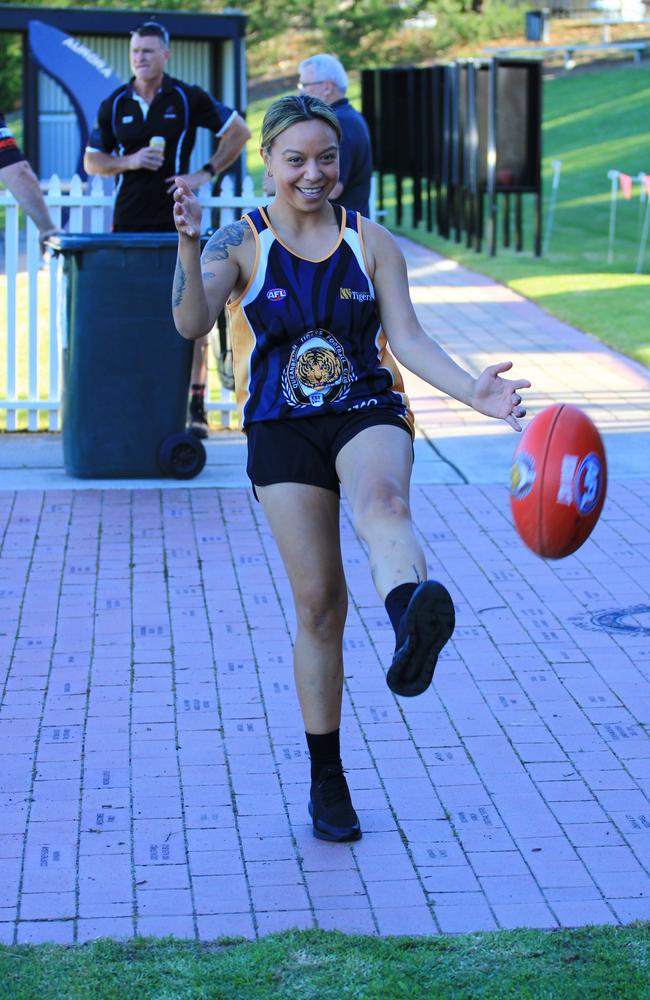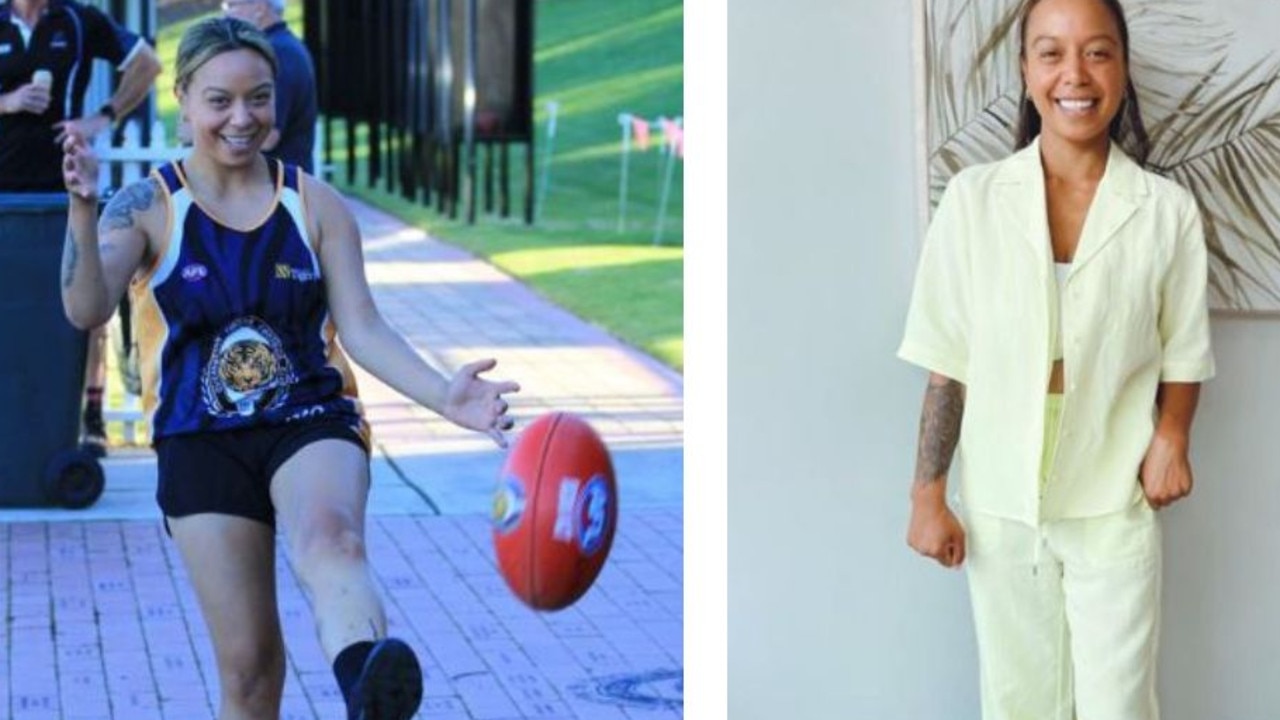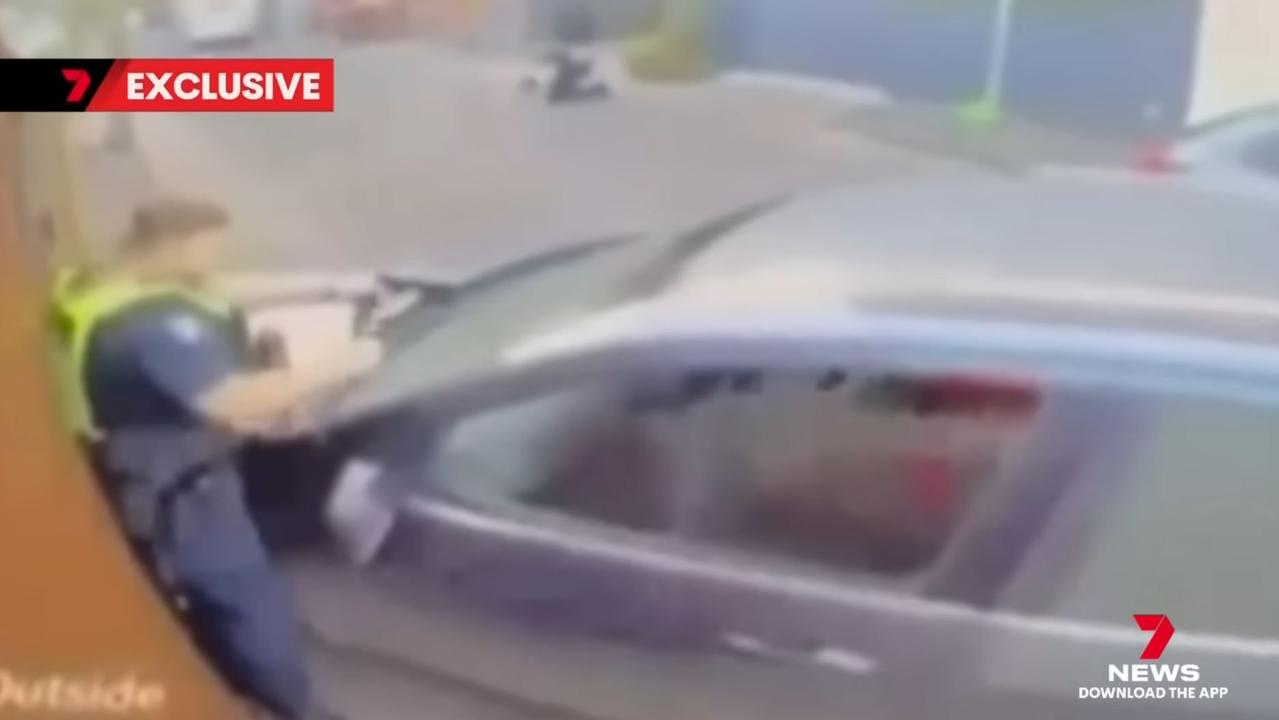Lupus once left Lani Watson barely able to walk — now she’s back playing footy
Lani Watson has become the first person in Australia to have her lupus, a previously incurable auto-immune condition, successfully treated with a groundbreaking new therapy.

Victoria
Don't miss out on the headlines from Victoria. Followed categories will be added to My News.
A Melbourne hospital has successfully treated an incurable auto-immune condition with a “game-changing” cancer therapy for the first time in Australia.
Monash Hospital used CAR-T cell therapy — a personalised treatment typically used to treat cancer of the immune system — for a patient with lupus in a global trial last June.
Lani Watson, 33, was unable to walk more than a few metres at a time due to unbearable pain at the height of her symptoms, but is now in remission and back to playing football.
She said it had given her “my life back”.
Monash Health haematology clinical director Professor Jake Shortt said the therapy involved a specialised laboratory genetically modifying a patient’s own immune cells to recognise — and then destroy — the harmful disease-causing cells.
“It’s been likened to a living drug,” he said.
He said this was done by collecting T-cells, “the part of the immune system that can kill other cells”, from a patient’s blood and then giving back the upgraded versions in a process similar to a blood transfusion.
“It’s a very exciting treatment and technology,” he said.

Monash Health lupus clinic head Associate Professor Alberta Hoisaid lupus occurred when the “immune system turns against” the body and “attack its normal cells”.
“It can affect different parts of your body, commonly leading to skin problems, joint pain and fatigue.
“[It’s] nine times more common in woman than men.”
It’s thought to affect at least 20,000 Australians.
Prof Hoi said standard treatment typically involved long-term imunnosuppressants, but — while helpful for many — they came with their own set of problems and, for some patients like Ms Watson, were not effective.
“This is why CAR T-cell therapy is generating so much excitement,” she said.
Prof Shortt said the therapy, used at Monash to treat the cancer lymphoma, could be repurposed for lupus because both diseases involved an issue with the same immune cell: lymphocytes.
“Patients with lupus … their lymphocytes are attacking their body because they’ve overactive,” he said.
“The lymphocytes, although they’re not cancerous, are causing the disease.”
He said CAR T-cell therapy was a highly intensive process and — because each treatment was unique to the individual patient — cost hundreds of thousands of dollars.

But for patients with few other options, it could be life-changing he added and the trial — funded by the therapy’s owner Novartis — showed the possibilities for auto-immune disease treatment at Monash.
Canberra’s Lani Watson was the only Australian, and one of just 21 patients worldwide chosen for the trial, which was funded by the therapy’s owner Novartis.
She was diagnosed with lupus in 2022 and said she struggled with fatigue and pain, including one episode where the pain was so bad she passed out.
“I had an episode where my whole body inflamed, literally from head to toe, and I was in so much pain that it actually caused me to pass out,” she said.
“In 2023 it got me to the point where I couldn’t walk very far at all, maybe a metre or two, and then I had to sit down.
“It stopped me from playing [football].
“I’d have to get bed early, I’d have to sleep in the afternoon, I couldn’t function.”
But she said, after the therapy, she began to feel better and some symptoms — “such as her constantly swollen, inflamed hands,” — improved “almost immediately”.
“I’m now in remission, playing footy again and without pain,” she said.
“It’s almost been a year since I had treatment and I’ve not had any flare ups.
Ms Watson, who will be monitored for the next 15 years as part of the trial, said she could do “what I used to be able to do” and was “super grateful” to the Monash team.
Victorian Health Minister Mary-Anne Thomas hailed the milestone as a “breakthrough” and said it had “significant implications for how women with auto-immune diseases access treatment into the future”.
“CAR T-cell therapy is changing lives and the results from Lani’s treatment are incredibly encouraging.”
Originally published as Lupus once left Lani Watson barely able to walk — now she’s back playing footy



